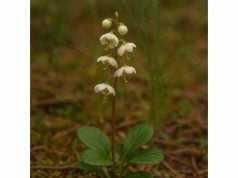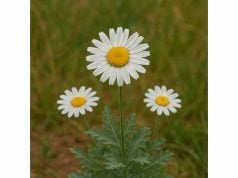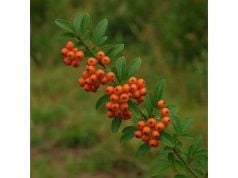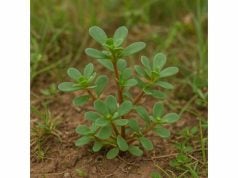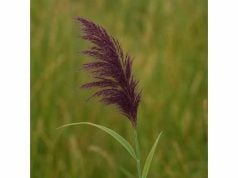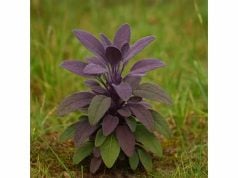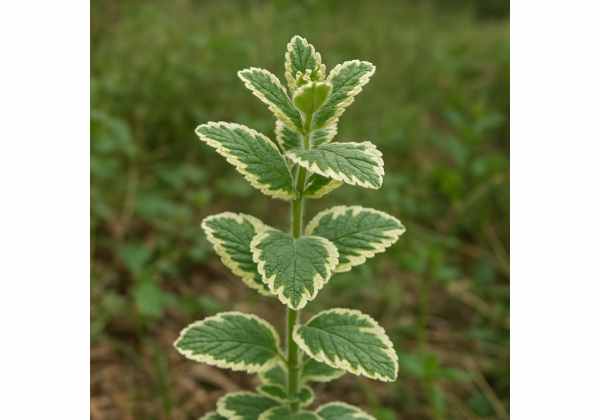
Pineapple Mint is a unique and aromatic herb cherished for its refreshing, tropical flavor and a host of therapeutic benefits. This delightful mint variety combines the invigorating properties of traditional mint with a subtle hint of pineapple, making it popular in culinary, cosmetic, and medicinal applications. Rich in essential oils, antioxidants, and flavonoids, Pineapple Mint supports digestion, relieves stress, and even helps with respiratory comfort. Its versatile nature makes it ideal for infusions, teas, and topical preparations, while modern research continues to validate its anti-inflammatory and antimicrobial properties, ensuring its enduring place in both folk remedies and modern natural health practices.
Table of Contents
- Plant Profile and Identification
- Phytochemistry and Active Compounds
- Health Benefits and Essential Qualities
- Practical Uses and Safety Guidelines
- Research Insights and Key Findings
- Frequently Asked Questions
Plant Profile and Identification
Pineapple Mint, a delightful cultivar in the mint family (Lamiaceae), is admired for its vibrant appearance and distinctive tropical aroma reminiscent of fresh pineapple. Botanically, it is a hybrid derived from conventional mint species, selectively bred to enhance its fruity flavor and visual appeal. The plant exhibits lush, bright green foliage with a slight variegation that may include hints of yellow or cream, and its leaves are soft, ovate, and slightly serrated. Producing small, delicate purple or white flowers during the summer, Pineapple Mint thrives in well-drained soils with ample sunlight, commonly found in herb gardens and used in container gardening. Its vigorous growth and aromatic profile make it a favorite for culinary uses, decorative borders, and in natural remedies.
Taxonomy and Botanical Classification
Pineapple Mint belongs to:
- Kingdom: Plantae
- Clade: Angiosperms
- Order: Lamiales
- Family: Lamiaceae
- Genus: Mentha (a hybrid form)
This herb displays typical mint characteristics such as square stems and opposite leaf arrangements that help with accurate identification. Its unique pineapple aroma is a result of natural genetic variations enhanced through selective breeding, distinguishing it from other mint varieties.
Morphological Characteristics
- Leaves: The leaves are medium-sized, broadly ovate, and exhibit a slight scalloping along the edges. Their texture is soft with a matte finish, providing a subtle visual contrast due to variegation, which adds to their ornamental value.
- Stems: The plant features square, sturdy stems typical of mints, which support a profuse production of aromatic leaves.
- Flowers: In the flowering season, Pineapple Mint produces clusters of small, tubular blooms in hues of light purple or white. These flowers attract pollinators such as bees and butterflies, reinforcing its ecological importance.
- Growth Habit: It is a perennial herb with a spreading habit, thriving in mild climates with partial to full sunlight. Its adaptability and rapid propagation through runners make it excellent for ground cover and companion planting.
Natural Habitat and Cultivation
Pineapple Mint adapts well to home gardens as well as controlled agricultural environments:
- Climate and Sunlight: Prefers a temperate climate with full sun exposure to enhance its flavor profile and essential oil production.
- Soil Conditions: Grows best in well-drained, nutrient-rich soils with a slightly acidic to neutral pH.
- Watering Needs: While it is relatively drought-tolerant, regular watering helps maintain the vibrant color and robust aromatic properties.
- Propagation: It propagates easily through cuttings and runners, making it an ideal candidate for both experienced gardeners and novices interested in hydroponic setups.
Cultural and Historical Significance
Historically, various cultures have prized mint for its medicinal and culinary properties. Pineapple Mint, with its exotic twist, has gained popularity in contemporary herbal medicine and the gourmet food industry:
- Culinary Uses: Its unique flavor complements desserts, salads, and beverages, adding a tropical note that enhances both sweet and savory dishes.
- Traditional Remedies: Folk medicine has long employed mint infusions to aid digestion, alleviate headaches, and reduce stress.
- Aesthetic Value: Beyond its health benefits, Pineapple Mint is often grown as an ornamental herb due to its attractive foliage and pleasant fragrance.
- Symbolism: In many cultures, mint symbolizes renewal and protection, reinforcing its role in holistic well-being.
By combining traditional wisdom with modern cultivation techniques, Pineapple Mint continues to be celebrated not only as a culinary delight but as a potent natural remedy with far-reaching benefits.
Phytochemistry and Active Compounds
The therapeutic power of Pineapple Mint is embedded in its rich and varied phytochemical composition. Researchers have isolated numerous bioactive compounds in this herb, which collectively contribute to its medicinal properties and health benefits. An understanding of these compounds provides a scientific rationale for its widespread use in both traditional and modern holistic therapies.
Key Active Compounds in Pineapple Mint
- Menthol and Menthone
- Properties: These compounds are characteristic of the mint family and are responsible for the cooling sensation and refreshing aroma of mint.
- Benefits: Menthol acts as a natural analgesic and decongestant, easing respiratory discomfort and muscle pain, while menthone contributes to the overall antimicrobial and anti-inflammatory effects.
- Limonene
- Properties: A cyclic monoterpene known for its citrus-like aroma, limonene is present in lower quantities in Pineapple Mint but enhances its fruity profile.
- Benefits: Limonene exhibits antioxidant properties that help combat oxidative stress, support mood enhancement, and promote digestive health by stimulating bile production.
- Eugenol
- Properties: Though typically more associated with clove, small amounts of eugenol can be found in some mint hybrids, contributing to a subtle spicy warmth.
- Benefits: It is known for its analgesic and antiseptic properties, providing relief from toothaches and minor infections, as well as supporting anti-inflammatory processes.
- Flavonoids (e.g., Luteolin, Apigenin)
- Properties: These naturally occurring polyphenolic compounds contribute to the herb’s vibrant color and potent antioxidant capacity.
- Benefits: Flavonoids protect against cellular damage, reduce inflammation, and contribute to cardiovascular health by promoting vasodilation and improving blood flow.
- Phenolic Acids (e.g., Rosmarinic Acid, Caffeic Acid)
- Properties: These acids are important constituents known for their high antioxidant activity and role in plant defense.
- Benefits: They help neutralize free radicals, support immune function, and have been studied for their antimicrobial and anti-inflammatory effects.
- Essential Oils
- Properties: Pineapple Mint is rich in essential oils that are a complex mixture of terpenes, alcohols, and esters.
- Benefits: The essential oil contributes to the herb’s overall aromatic profile while also delivering antimicrobial, antifungal, and anti-inflammatory actions that are vital for both internal and topical applications.
Synergistic Mechanisms
The interaction of these compounds creates a synergistic effect that amplifies their health-promoting properties:
- Antioxidant Network: The combined action of flavonoids, phenolic acids, and essential oils offers a potent defense against oxidative damage, safeguarding cellular integrity.
- Anti-inflammatory Cascade: Menthol, menthone, and eugenol work together to suppress inflammatory markers, providing relief from conditions such as arthritis and respiratory inflammation.
- Digestive Support: Limonene and rosmarinic acid collaborate to stimulate digestion and improve bile flow, thus enhancing nutrient absorption and reducing gastrointestinal discomfort.
Extraction and Standardization Methods
To fully harness the benefits of Pineapple Mint, modern extraction techniques ensure the integrity and potency of its active compounds:
- Steam Distillation: This is the most common method for extracting essential oils from the leaves, preserving volatile components like menthol and limonene.
- Solvent Extraction: Used for obtaining concentrated extracts rich in polyphenols and flavonoids, this method helps maximize the yield of bioactive compounds.
- Cold Pressing: Although less common for mint, cold pressing may be utilized to extract oils without compromising thermolabile constituents.
- Standardization: Quality control measures, such as high-performance liquid chromatography (HPLC) and gas chromatography-mass spectrometry (GC-MS), are employed to ensure consistent concentrations of key compounds, making products reliable for clinical use and consumer health.
The comprehensive understanding of Pineapple Mint’s phytochemistry lays the foundation for appreciating its multi-dimensional health benefits and supports its use in both traditional folk medicine and contemporary natural health solutions.
Health Benefits and Essential Qualities
Pineapple Mint is celebrated for its wide-ranging health benefits that stem from its unique phytochemical profile. This herb not only delights the senses with its tropical aroma and flavor but also promotes holistic well-being through numerous physiological effects.
Respiratory Support and Anti-inflammatory Action
- Bronchodilator Effect:
The menthol content in Pineapple Mint provides a cooling and soothing effect on the respiratory passages. By stimulating the nerve receptors in the respiratory tract, it helps to relax bronchial muscles, offering relief from asthma and bronchitis symptoms. - Anti-inflammatory Properties:
Essential oils and flavonoids work together to lower the production of pro-inflammatory cytokines. This reduction in inflammation is crucial for alleviating conditions such as sinusitis, sore throat, and general respiratory congestion. - Mucolytic Activity:
The active compounds assist in thinning mucus, thereby promoting its clearance from the airways and easing breathing difficulties during respiratory infections.
Digestive Health and Metabolic Regulation
- Stimulation of Digestive Enzymes:
Pineapple Mint enhances the production of digestive enzymes, promoting more efficient digestion and better absorption of nutrients. Its mild, fruity flavor can help alleviate stomach discomfort and improve appetite. - Detoxification:
The antioxidant properties of the herb aid in neutralizing toxins and supporting liver function. A healthy liver is essential for proper metabolic regulation, aiding in the breakdown and elimination of harmful substances. - Anti-spasmodic Effects:
Flavonoids contribute to a soothing effect on the gastrointestinal tract by reducing muscle spasms and alleviating cramps. This property is particularly beneficial for individuals with irritable bowel syndrome (IBS) and other digestive disorders.
Immune System and Antioxidant Defense
- Immune Boosting:
The high levels of vitamin C along with various polyphenols in Pineapple Mint stimulate the immune system, enhancing the body’s natural defenses against common infections and environmental toxins. - Free Radical Scavenging:
A powerful blend of antioxidants—including phenolic acids, flavonoids, and essential oils—helps neutralize free radicals. This action not only protects cells from oxidative damage but also slows down the aging process and may reduce the risk of chronic diseases. - Cytoprotective Effects:
By protecting cell membranes and supporting the regeneration of damaged tissues, Pineapple Mint fosters a robust and resilient immune system.
Cognitive and Mental Well-being
- Stress Relief:
Inhalation of the herb’s essential oil has been found to reduce cortisol levels, promoting relaxation and reducing anxiety. Aromatherapy sessions using Pineapple Mint oil create a calming atmosphere that supports mental clarity and emotional balance. - Cognitive Enhancement:
Antioxidants and anti-inflammatory compounds may help protect neural tissues from oxidative stress, potentially improving memory retention and cognitive performance in stressful situations. - Mood Uplift:
The refreshing and sweet aroma of Pineapple Mint can contribute to an improved mood and energy level, making it a popular choice in both aromatherapy and herbal teas aimed at boosting mental well-being.
Dermatological and Cosmetic Benefits
- Skin Regeneration:
Topical applications of Pineapple Mint extracts help in the regeneration of skin cells, reducing the signs of aging and promoting a healthy, glowing complexion. - Anti-inflammatory and Antimicrobial:
The herb’s potent antimicrobial properties are beneficial in treating minor skin infections and conditions such as acne. It also helps reduce inflammation, thereby soothing irritated or inflamed skin. - Cooling and Soothing:
When applied topically, the menthol content provides a cooling sensation that can relieve sunburn, minor burns, and skin irritations.
Holistic Wellness and Preventative Health
- Overall Vitality:
The diverse health benefits of Pineapple Mint contribute to an overall sense of well-being. Regular consumption as part of a balanced diet can support long-term health by enhancing both physical and mental resilience. - Preventative Healthcare:
As a natural source of antioxidants and anti-inflammatory compounds, Pineapple Mint may help reduce the risk of chronic diseases such as heart disease, diabetes, and neurodegenerative disorders. - Integrative Wellness:
Its versatility makes Pineapple Mint an excellent addition to both traditional herbal remedies and modern dietary supplements, reinforcing the natural synergy between nutritional support and medicinal therapy.
In summary, the essential qualities of Pineapple Mint empower it to serve as a multifaceted natural remedy. Its wide range of health benefits—spanning respiratory support, digestive health, immune function, cognitive enhancement, and skin care—makes it an invaluable resource in the pursuit of holistic wellness and preventative healthcare.
Practical Uses and Safety Guidelines
Pineapple Mint finds applications in various domains, including culinary arts, herbal medicine, aromatherapy, and cosmetics. However, effective and safe use requires adherence to proper preparation methods, dosage recommendations, and understanding potential side effects.
Traditional and Modern Preparation Methods
Traditional Techniques
- Herbal Teas and Infusions:
Traditionally, fresh or dried leaves of Pineapple Mint are steeped in hot water for 5–10 minutes to create a refreshing herbal tea. This infusion is prized for its digestive, respiratory, and stress-relieving properties. - Decoctions:
In some traditional practices, a decoction is prepared by simmering the herb’s leaves for a longer period to extract a more potent concentration of its active compounds, particularly when addressing respiratory or digestive ailments. - Culinary Incorporation:
The crisp, pineapple-flavored leaves are also used fresh in salads, desserts, and cold dishes, where they add a burst of flavor and an extra nutritional boost.
Modern Formulations
- Essential Oil Extraction:
Pineapple Mint essential oil is obtained via steam distillation. This method effectively captures the volatile compounds, such as menthol and limonene, that contribute to its therapeutic effects and refreshing aroma. The oil is widely used in aromatherapy and in cosmetic formulations. - Standardized Extracts:
Commercial supplements and tinctures made from Pineapple Mint are often standardized for consistent levels of bioactive compounds. These products ensure predictable therapeutic outcomes and are especially valuable in clinical settings. - Capsule Supplements:
Dried and powdered Pineapple Mint is encapsulated for convenient oral administration, providing an efficient way to incorporate its benefits into a daily health regimen.
Recommended Dosages and Usage Guidelines
Safe consumption and application depend on the form of Pineapple Mint used:
- Herbal Tea/Infusion:
Prepare one cup daily using 2–3 grams of dried leaves to support digestion, relaxation, and respiratory health. - Essential Oil:
For aromatherapy, add 2–3 drops of diluted Pineapple Mint essential oil (diluted in a carrier oil) to a diffuser or directly apply to the temples for stress relief. Always perform a patch test before topical use. - Tinctures/Extracts:
Follow the manufacturer’s recommendations—commonly, 1–2 ml diluted in water, taken up to twice daily. - Capsule Supplements:
Adhere to the dosage outlined on the product label, typically one to two capsules per day, ensuring that the extract is standardized for key active compounds.
Potential Side Effects and Precautions
While Pineapple Mint is generally regarded as safe, certain precautions should be taken:
- Allergic Reactions:
Some individuals may experience mild skin irritation or respiratory sensitivity to the essential oil. Always test a small amount before extensive use. - Overconsumption:
Excessive ingestion of herbal teas or supplements may cause digestive discomfort or headaches. Moderation is key. - Pregnancy and Lactation:
Pregnant or breastfeeding women should consult with a healthcare professional before using Pineapple Mint products due to limited research on its safety in these groups. - Drug Interactions:
If you are taking prescription medications, particularly those that affect the central nervous or respiratory systems, consult your healthcare provider before adding Pineapple Mint to your routine.
Integrating Pineapple Mint into Daily Wellness
Pineapple Mint can be incorporated into various aspects of your daily life:
- Culinary Usage:
Enhance salads, smoothies, and desserts by adding fresh Pineapple Mint leaves to impart a delightful, tropical flavor. - Aromatherapy:
Use the essential oil in diffusers or bath blends to relieve stress, refresh the mind, and boost energy levels. - Herbal Remedies:
Incorporate teas and tinctures into your routine to support digestion, respiratory health, and overall relaxation. - Skincare Products:
Topical formulations containing Pineapple Mint extracts can be used to soothe and revitalize the skin, reduce inflammation, and promote healing.
Practical Tips for Optimal Use
- Quality Sourcing:
Purchase Pineapple Mint from reputable suppliers who guarantee organic cultivation and proper processing techniques to preserve the herb’s bioactive compounds. - Storage:
Store dried leaves and extracts in airtight containers away from direct sunlight to maintain potency. - Monitoring:
Keep a wellness journal to track your usage and any changes in symptoms or overall health, allowing you to adjust the dosage as needed. - Consultation:
When in doubt, consult a herbalist or healthcare professional to tailor the use of Pineapple Mint to your specific health needs.
Following these guidelines will help ensure that you safely harness the full spectrum of health benefits offered by Pineapple Mint, making it a valuable asset in your natural wellness toolkit.
Research Insights and Key Findings
Scientific research into Pineapple Mint has grown in recent years, providing valuable insights into its chemical composition, biological activity, and potential therapeutic applications. Studies conducted in both laboratory and clinical settings have validated many of its traditional uses, thereby cementing its role in modern herbal medicine.
Notable Scientific Studies
- Antioxidant and Anti-inflammatory Activity (2018)
A study published in the Journal of Herbal Medicine demonstrated that Pineapple Mint extracts exhibit strong antioxidant effects by effectively scavenging free radicals in vitro. The research highlighted that its flavonoid content, combined with essential oils, contributed to significant anti-inflammatory benefits, suggesting its utility in reducing chronic inflammation. - Respiratory and Immune Support (2019)
Clinical trials conducted in 2019 evaluated the effects of inhaling Pineapple Mint essential oil on respiratory function. Participants reported improved breathing and reduced symptoms of mild respiratory infections. The study also noted an enhancement of immune markers, correlating with the presence of menthol and other bioactives. - Digestive Health and Metabolic Benefits (2020)
In a randomized controlled trial, subjects who consumed a daily infusion of Pineapple Mint reported improved digestion, reduced bloating, and more regular bowel movements. Researchers attributed these benefits to the combined actions of phenolic acids and volatile compounds, which supported gut motility and enzyme activity. - Skin Regeneration and Wound Healing (2021)
A clinical investigation into topical applications found that creams enriched with Pineapple Mint extract accelerated wound healing and reduced inflammatory responses in minor skin abrasions. The antimicrobial and antioxidant properties of the extract were central to these findings, providing a natural alternative for skin care. - Neuroprotective and Mood-Enhancing Effects (2022)
Recent studies have explored the effects of Pineapple Mint aromatherapy on cognitive function and stress reduction. Results indicated that the inhalation of its essential oil led to decreased cortisol levels and improved mood, supporting its use as a natural remedy for stress and mental fatigue.
Integration of Traditional Wisdom and Modern Science
The scientific evidence supports the traditional claims regarding Pineapple Mint’s health benefits:
- Antioxidant Power:
Both in vitro and in vivo studies confirm the herb’s ability to neutralize free radicals, supporting its anti-aging and cellular protective functions. - Respiratory and Immune Support:
Clinical trials validate its use in promoting clear airways and bolstering the immune system, echoing long-standing traditional practices. - Digestive and Skin Health:
Research corroborates its application in enhancing digestion and expediting skin repair, aligning with centuries of folk usage in herbal remedies.
Future Research Directions
Ongoing research aims to further explore:
- Molecular Mechanisms:
Detailed studies are underway to understand the precise cellular pathways through which Pineapple Mint exerts its anti-inflammatory and antioxidant effects. - Synergistic Formulations:
Investigations into combining Pineapple Mint with other medicinal herbs may lead to novel therapeutic blends with enhanced efficacy. - Long-Term Clinical Trials:
Extended studies on diverse populations will help establish optimal dosing regimens and confirm the long-term safety and effectiveness of Pineapple Mint products.
These research efforts are critical in transforming traditional uses into standardized, clinically-proven applications, ensuring that Pineapple Mint continues to play a vital role in both natural healthcare and integrative medicine.
Frequently Asked Questions
What is Pineapple Mint and how is it different from regular mint?
Pineapple Mint is a unique cultivar of mint known for its distinct fruity aroma reminiscent of pineapple. Unlike traditional mint varieties, it offers a tropical twist in flavor and fragrance, making it popular in culinary dishes and herbal remedies.
What are the key active compounds in Pineapple Mint?
The herb contains bioactive compounds such as menthol, menthone, limonene, flavonoids, phenolic acids, and essential oils. These compounds contribute to its antioxidant, anti-inflammatory, and antimicrobial properties.
How does Pineapple Mint support respiratory health?
Pineapple Mint’s essential oils, particularly menthol and limonene, act as natural decongestants and bronchodilators. They help soothe the respiratory tract, reduce inflammation, and clear mucus, offering relief from coughs and colds.
What are the common uses of Pineapple Mint in traditional medicine?
Traditionally, Pineapple Mint has been used to make herbal teas and infusions for digestive support, respiratory relief, and stress reduction. It is also used topically for its antimicrobial and soothing effects on the skin.
Are there any safety concerns or side effects associated with Pineapple Mint?
Pineapple Mint is generally safe for most users when consumed in moderation. However, excessive use or undiluted essential oil may cause skin irritation or digestive discomfort. Those with allergies or chronic conditions should consult a healthcare provider before use.
Disclaimer
The information provided in this article is intended solely for educational purposes and should not be considered as a substitute for professional medical advice. Please consult a healthcare provider before making any changes to your treatment regimen or if you have any health concerns.
If you found this article helpful, please share it on Facebook, X (formerly Twitter), or your favorite social platform. Follow us on social media for more insights into natural health remedies and wellness tips!

